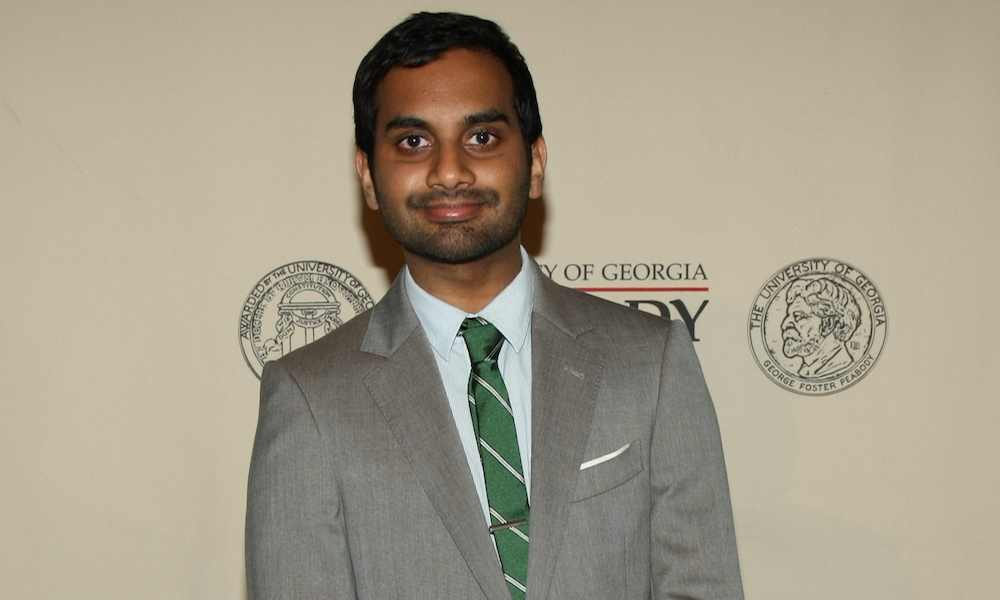More than a year after Babe.net published a story detailing sexual misconduct allegations against Aziz Ansari, the comedian himself reflected on that experience during one of his sets. He confessed:
I felt really upset and humiliated and embarrassed, and ultimately I just felt terrible this person felt this way.
Aziz Ansari hoped his experience would help other men “just be more thoughtful and aware and willing to go that extra mile” to ensure others felt comfortable.
When allegations were first published, the world was divided, to say the least. When I read the anonymous Grace’s account of her night, I was extremely disheartened and disappointed. I believed Grace, but truth be told, I wished her story wasn’t true. Seeing that I’m a cisgender, heterosexual, brown male and therefore not statistically in the demographic of most survivors, there were definitely personal biases I needed to keep in check.
What The Aziz Ansari Comeback Tour Implies
Ansari’s return to the stage has prompted an inevitable question: Should men accused of sexual misconduct be allowed a second chance? More broadly, can they be forgiven?
Right off the bat, I can say that men like Harvey Weinstein and Kevin Spacey, who purposely used their positions of power to take advantage of others, do not deserve a second chance. The fact that they have not yet served jail time for their offenses is chance enough.
But with someone like Aziz Ansari, who branded himself a feminist, male ally and used his platform to critique non-feminist men, the answer is not as black and white. As Vox described it, this wasn’t an example of continued workplace harassment; it was a single “bad date.” With Mindy Kaling’s recent public support of him, the situation becomes that much more nuanced.
https://www.instagram.com/p/BuNsPB6neOp/
Sure, Ansari did more than most accused men following the allegations. He confessed that Grace’s accounts of the night were true, instead of denying them. He sent a private apology text to Grace. He readdressed the allegations in his recent set. But is this enough?
Is Redemption Even On The Table?
Given the historical subjugation of women and the relative infancy of the #MeToo movement to that, it’s more than fair to ask whether we as a society should even be worried about a framework of redemption for accused men.
Yet so far, comedians like Aziz Ansari and Louis C.K. have been coming back to the comedy stage on their own terms. Forgiveness is a two-way street. If these men are legitimately looking to atone, there must be an understanding that they cannot have the only say.
What Can Forgiveness Look Like?
There are two types of forgiveness: one between the perpetrator and the survivor and another between the perpetrator and the public. The first is something nobody except the survivor can speak to. Unfortunately, survivors are often told what actions constitute forgiveness rather than leaving them the agency to determine that for themselves.
"I forgave Bill Cosby years ago, for me. … Carrying resentment for someone like that, for an event that took place so long ago, wasn't hurting him at all. It was simply hurting me. So I forgave him, for me." – Patricia Steuer, Cosby accuser https://t.co/B9bQ3RZ6Hf pic.twitter.com/mMZVDFQhWj
— CNN (@CNN) April 27, 2018
And while forgiveness for the sake of relinquishing resentment can be important for self-healing, focusing on how survivors should forgive misses the entire point of their perpetrators coming back into the spotlight. The question instead should be, what should these perpetrators do if they legitimately want to atone?
Assistant Professor Alissa Ackerman-Acklin of California State University explains that while publicly shaming perpetrators of might feel good, it doesn’t actually lead to reduced sexual misconduct. Professor Lesley Wexler of the University of Illinois College of Law offers restorative justice as a start, where the perpetrator publicly admits what they did wrong and details exactly how they can be better.
It Starts With an Apology
Writers Susan McCarthy and Marjorie Ingall of SorryWatch agree that there is value in public remorse by the accused. McCarthy states,
A public apology, if it’s done well, tells the world ‘[what you did] isn’t OK.’
They created a checklist for what that looks like. Apologize to the individual you hurt for what you did. Acknowledge the effects your actions had explaining why you acted that way without making excuses. And finally, let the person you hurt have their say.
This is the text Grace* sent Aziz Ansari after their date which left her feeling “violated”. She tells Ansari how uncomfortable he made her feel, saying “you ignored clear non-verbal cues” and “kept going with advances.”
Read the full story on https://t.co/FyMMG6uO1j. pic.twitter.com/lPOvW6tFTr
— babe (@babedotnet) January 14, 2018
It’s pretty straightforward and rather universal, yet both Ansari’s statement after the accusation and his moment of reflection on it last month don’t hit these marks. We’ve yet to get a public declaration of the words “I’m sorry” or “I apologize” from him.
So What’s the Takeaway?
While we can never speak for Grace, we can decide as members of the public whether we accept the statements of Aziz Ansari, and by extension, whether we are ready to accept him back into the public. Some have suggested that atonement for accused celebrities means forfeiting their status as public figures altogether. The crowds that have attended Ansari’s shows since have implied otherwise.
But one thing is clear: If Aziz Ansari and other men like him are legitimately looking for atonement, it cannot only happen on their terms.





